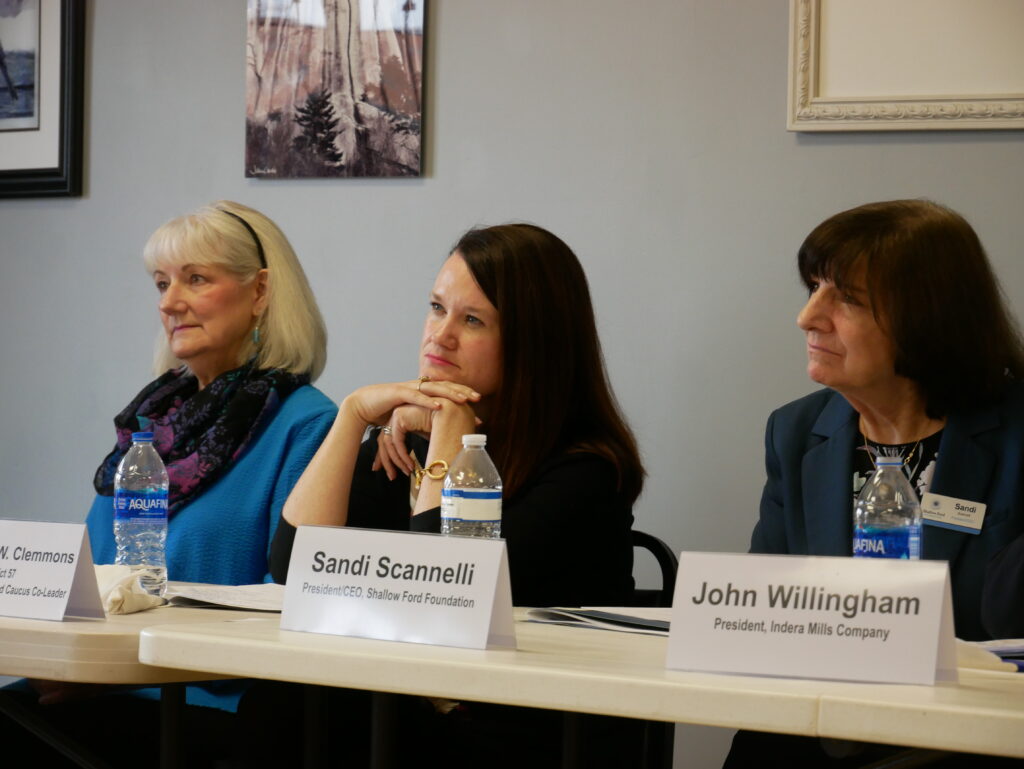What can rural communities learn from Yadkin County?
Early Bird readers, hello again. Newcomers, welcome! If you were forwarded this email, you can sign up here to receive it every two weeks, and join our conversation on issues facing North Carolina’s young children and those who support them. If you’re already a subscriber, please help us reach more people by sharing this with your friends and co-workers interested in early childhood education.


I hope everyone’s January ended with hope for the year ahead. Here at EdNC, we’ve got lots of exciting plans for finding new ways to answer your questions, provide you with useful information, and connect what’s happening in Raleigh to what’s happening in communities and classrooms across North Carolina.
Speaking of local happenings, I made a trip to Yadkinville since last time, joining state legislators and local leaders from early childhood, industry, K-12 education, and philanthropy to learn about a new child care model those leaders want to make a reality.
The model aims to attract new individuals into the child care field and open more options for families. It would host six small programs in one building, helping with the barriers to starting a business by providing a ready-to-use facility, sharing spaces and costs among providers, and creating a support network between providers. And it would open more spaces for infants and toddlers, which are particularly hard to come by in the area — and in rural places across the state.
The Child Care Commission approved a petition for a rule change last Monday, starting a months-long rule-making process that would create a new licensure avenue for this approach. I’ll be following that process.
When we were in Yadkin County, legislators also said they would be open to action to help the innovation move forward. Rep. David Willis, R-Union, who himself owns a preschool, said he sees the solution and funding to child care shortages involving many players, including local and state government, parents, and employers.
“We know there’s going to have to be a multi-layered approach to this,” Willis said. “Families are going to have to be involved, local communities are going to have to be involved, businesses are going to have to get re-engaged and involved. And obviously, we at the state level have to be involved.”
Below, don’t miss early childhood updates from the General Assembly, news on the state’s Preschool Development Grant and the latest estimate ($3.5 billion) on how much the state’s losing because of inadequate child care, and a North Carolina poll that found support for public child care assistance.
Early Bird reads: What we’re writing
Report finds infant-toddler child care crisis costs North Carolina $3.5 billion annually
“If there’s a more bipartisan issue than taking care of toddlers, I don’t know what it is,” said Jack McBride, founder and CEO of Contec Inc., a manufacturer based in Spartanburg, South Carolina, during a congressional briefing on Feb. 2.
The briefing was paired with a new report from ReadyNation on child care’s impacts on parents and the economy. Seventy-five percent of parents reported struggling to access child care.
The report found “the annual cost of the infant-toddler child care crisis is $122 billion nationwide,” writes EdNC’s Katie Dukes. “In North Carolina alone, the cost is $3.5 billion.” That annual total has increased the organization’s $57 billion estimate in 2018.
State to support family child care with federal grant
The federal government awarded North Carolina’s Department of Health and Human Services (DHHS) a one-year $4 million Preschool Development Grant, which the state is using to better understand the needs of family child care homes, strengthen the state’s network of licensed homes, and increase access for children and families.
“Our top priority is supporting our child care workforce so that they have the skills, knowledge and compensation they need to stay in the field. The Preschool Development Grant will help us serve a critical part of that workforce better — family child care providers,” said Susan Gale Perry, DHHS chief deputy secretary for opportunity and well-being, said in a press release.
I explore why the state has seen an almost 30% decline in licensed homes, and the challenges facing both licensed and unlicensed home-based programs.
In other early learning news: What I’m reading
Biden wants to bring back the expanded Child Tax Credit, a monthly check to families with children - From Fortune
PROOF POINTS: Long-term college benefits from high-quality universal pre-K for all - From The Hechinger Report
In Post-Roe World, These Conservatives Embrace a New Kind of Welfare - From The New York Times
Warren introduces '$10 a day' child care legislation - From CBS News
Research & Resources: Let's talk public support for child care
A poll released last week of more than 900 North Carolinians across demographic and political differences found the overwhelming majority supported state investments in child care:
- 82% said they support the state using its surplus on high-quality affordable child care, when presented with a list of ways the state could spend that surplus. 53% strongly supported this, and 29% somewhat supported it. That’s compared to 79% supporting broadband access and affordability and 90% supporting workforce training, education, and support.
- 84% supported “investing state dollars in childcare assistance to ensure eligible families can access affordable, high-quality care,” when presented with a list of proposals “meant to help working people.” 58% strongly supported this, and 26% somewhat supported it.
- 90% said they support workers in essential services like child care being paid a living wage. 65% strongly supported this and 24% somewhat supported it.
The poll was released by the State Innovation Exchange in conjunction with the NC Budget and Tax Center.


